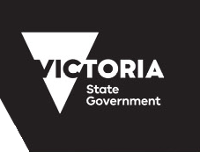Expanding the support for the people and groups on the ground
Landcare in the Port Phillip and Western Port region is more diverse now than it has ever been. Since the first Landcare groups established in this region in 1988, there has been growth, innovation and adaptation. While some groups have slowed or ceased, many others have formed targeting new local challenges and engaging new audiences.
The focus and methods vary, but the Landcare movement at its core still generally helps farmers and landholders understand their land and preserve and improve its condition, productivity and contribution to wider environmental health. Often this involves restoring or rejuvenating the vegetation, soils, waterways, indigenous species and coastal environments as they cope with soil issues, weeds, pest animals, habitat decline and nearby urbanisation.
The shared volunteer work of Landcare and its regular socialising with neighbours and like-minded locals also strengthens community networks and aids personal health and wellbeing. And in times of great need, such as after bushfires and floods, the community networks and resilience forged by Landcare has often come to the fore and been incredibly valuable.
In 2021, there are 85 Landcare groups active in this region plus approximately 450 other environmental volunteer organisations such as ‘Friends of’ groups. Many of the Landcare groups belong to one of 17 Landcare and environmental volunteer networks in the region. Together they contribute around $13 million worth of volunteer hours per year.
Melbourne Water, on behalf of the Victorian Government, supports the Landcare and community environmental volunteering movement in this region. A Regional Landcare Support Plan is in place and identifies opportunities for additional or expanded support if new funding is secured. Opportunities include:
- Adding additional funds to the existing Landare and Community Grants program to enable more high quality on-ground projects to be undertaken by groups to address priorities for sustainable production, biodiversity, climate change adaptation, etc.
- Expanding the program of leadership development and training/development opportunities for group leaders and members, such as training in governance, administration, volunteer recruitment, OH&S, succession planning, mental health and innovation.
- Expanding and strengthening links between groups and Traditional Owners to build cultural awareness and understanding, and foster collaboration and productive, mutually-beneficial relationships.
Themes and Local Areas
| Primary Theme: | Communities |
| Other Themes: | Native Vegetation, Sustainable Agriculture, Traditional Owners and Aboriginal Victorians, Climate Change |
| Primary Local Area: | All Local Areas |
| Other Local Areas: | |
| Project location: | All around the region |
| Scale of the project: | Information |
| New or continuing work: | Building on previous project/work |
Project partners
| Lead organisation: | Melbourne Water |
| Key partners: | Department of Energy, Environment and Climate Action (DEECA), Landcare Networks and Groups |
| Registered Aboriginal Party/s relevant to the project or its area: | Wurundjeri Woi Wurrung Cultural Heritage Aboriginal Corporation, Bunurong Land Council Aboriginal Corporation, Wadawurrung Traditional Owners Aboriginal Corporation |
Investment opportunities
| Opportunities for investors within this project start from: | $$ (Tens of thousands of dollars) |
| Estimated scale of investment for full project implementation: | $$$ (Hundreds of thousands of dollars) |
| Estimated timeframe for full project implementation: | 2-10 years |
Contribution toward targets
| Primary Regional Catchment Strategy target: | Community Participation – Over 2 million people participate annually in natural resource management events and activities conducted by relevant agencies, Councils and community groups across the region Sustainable agriculture – This region’s farms and agricultural industries are recognised as leaders in agri-ecological sustainability and resilience. |
| Relevant Biodiversity 2037 goal: | Support people take action for nature |
| Relevant National Landcare Program priority: | Agriculture systems – Projects that support industries, farmers and fishers to adopt new management practices that help them to adjust to weather and/or climate variability |
More information
Melbourne Water’s Regional Landcare Support Plan



